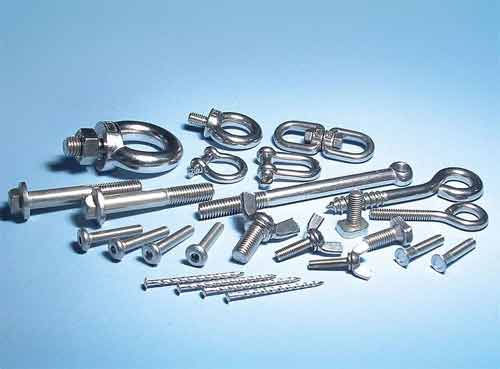 According to an external report, Bruce Darling, vice president of material management at Porteous Fastener, USA, recently submitted to the Western Pacific Fasteners Association’s report on the Asian fastener market in 2011: Steel prices continue to rise in the Taiwan market, and the US dollar continues to weaken. North Africa was caught in a civil war, and European buyers faced tough choices; in the Chinese market, steel and labor costs rose, and there were only a few plant expansions. Electricity curtailment and pollution became the number one issues.
According to an external report, Bruce Darling, vice president of material management at Porteous Fastener, USA, recently submitted to the Western Pacific Fasteners Association’s report on the Asian fastener market in 2011: Steel prices continue to rise in the Taiwan market, and the US dollar continues to weaken. North Africa was caught in a civil war, and European buyers faced tough choices; in the Chinese market, steel and labor costs rose, and there were only a few plant expansions. Electricity curtailment and pollution became the number one issues. China Taiwan’s China National Iron and Steel Corporation cut its 7-8 price at the end of May. Plates and rods and rods remained flat, with the rest being lowered overall. Among them, HRC was lowered by NT$1,754/ton, HRC by 1,419 yuan/ton, electro-galvanized steel by RMB1,500/ton, and electrical steel by RMB 2,600/ton. Hot-dip galvanized sheet is down 1613 yuan/ton.
In mainland China, all signs suggest that fastener purchase prices will continue to rise. The flood disasters in Australia and Brazil caused the price of iron ore to climb. Some people in the industry once threatened that steel prices will increase by 66% in 2011. Darling said that in response to this, we expect steel prices will continue to increase at a rate of 10% to 15%, and then in the latter part of 2011, there will be another increase of 5% to 8%.
Darling said that the development of Taiwan in 2010 was clearly better than in 2009, but it still did not meet expectations.
The recent round of steel prices saw a significant increase, which was a 9.3% increase. Industry insiders expect a larger increase in the future. Darling said. The U.S. dollar is relatively stable at present, but during the period of its weakness, many problems have come immediately.
Darling also pointed out that Taiwanese manufacturers have seen an upsurge in the procurement of machines, but most of them are only used for the replacement of existing old machines, and some spare parts forming machines have made Taiwan develop toward non-standard parts. North America is still Taiwan's largest fastener market.
The future development trend of Europe is even more unpredictable. China-EU anti-dumping cases have led some buyers to turn to Taiwan. In the WTO ruling, they believe that the EU’s practice violates the relevant WTO regulations. If China finally wins the anti-dumping case, this part of the buyer will again purchase from mainland China.
Darling also predicts that Taiwan's fastener purchase prices will likely continue to climb in the next two quarters. In the next three quarters, Taiwan's fastener prices will depend on the adjustment of steel prices in the second quarter. Most industry insiders believe that the steel price will eventually be lowered.
Nevertheless, due to the rapid development of high-speed rail, wind power and other industries, the domestic market demand for fasteners will continue to grow. In response, Darling also said that China's 100% export of fasteners may face a difficult period in the future.
In addition, China also faces serious power problems. Power cuts have seriously affected the production of steel and fasteners in mainland China. Pollution is another important issue faced by mainland China's steel and fastener companies. The pollution problem will very likely lead to the stoppage of production by many steel mills in mainland China, leading to a shortage of raw materials and rising steel prices. Recently, there are only a few factories in mainland China that are expanding.
Stainless Steel Railing Post,Stainless Steel Balustrade Posts,Stainless Steel Wire Balustrade Posts,Stainless Balustrade Posts
DONGYING SHENGYU METAL PRODUCT CO.,LTD , https://www.castingprocess.com